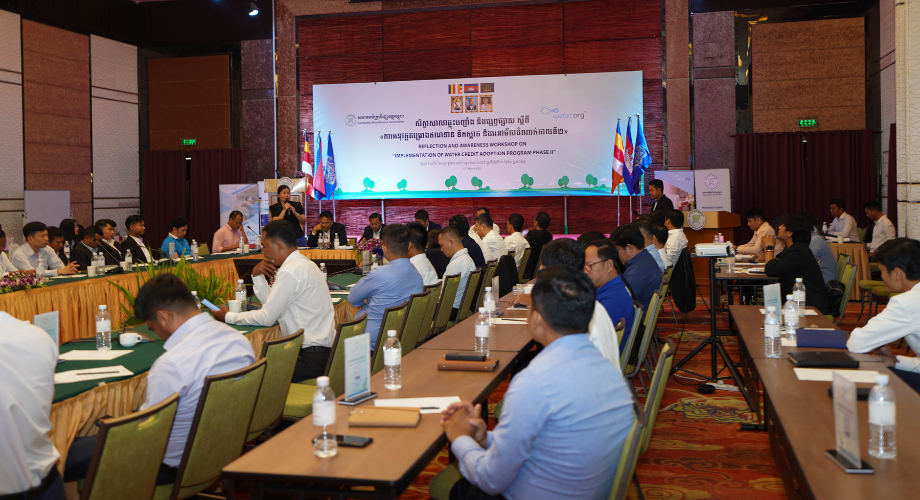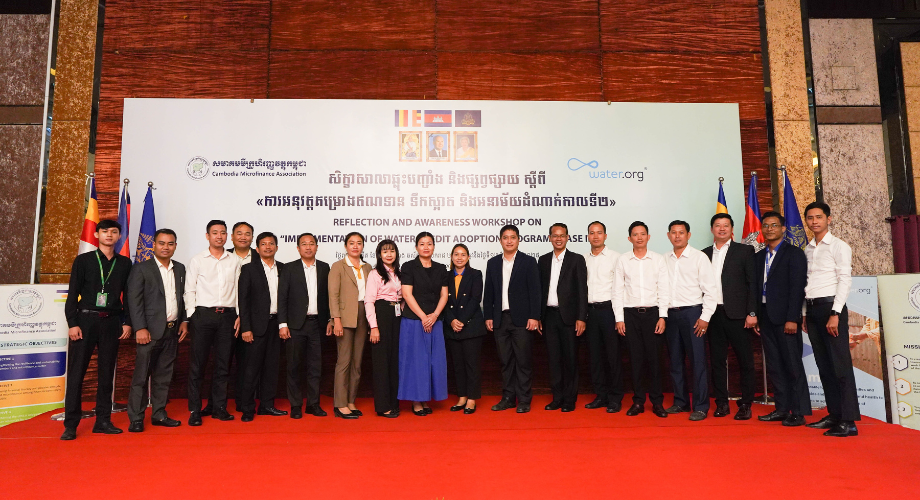The Cambodia Microfinance Association (CMA) successfully launched Phase II of the WaterCredit Adoption Program in March 2025 with activities commencing in January 2025 and extending through June 2027. This program aims to expand Water and Sanitation Lending by attract and mobilize funding through strategic partnerships to accelerate progress toward Sustainable Development Goal 6 (Clean Water and Sanitation for All).
To mark the launch, CMA also organized a workshop aimed at raising awareness on the program among its members, presenting key successes and lessons learned from the Phase-I implementation. The event attracted 78 participants, including 17 women.
In the first two months of this year, CMA’s 16 partner financial institutions, which have joined the program and increased from 14 financial institutions from the previous year, have made significant contributions, disbursing approximately USD 3 million in WASH portfolio funding. This investment has positively impacted on the lives of 15,000 people, leading to substantial improvements in water and sanitation access in our communities.


Access to safely managed water and sanitation remains a significant disparity between urban and rural areas. According to a 2022 report by the Joint Monitoring Programme (JMP) of WHO and UNICEF, only around 19 percent of rural households have access to safely managed water sources. The report further indicates that nearly 10 percent rely on surface water, and about 4 percent drink from unimproved water sources. These statistics place Cambodia among the region's countries with the lowest levels of access to improved water sources.
The WaterCredit Adoption Program, an initiative launched by CMA in cooperation with and funded by Water.org, is playing a crucial role in mitigating this situation. CMA is committed to actively promoting the program and to accelerating on-the-job capacity development, coaching, and mentoring for continuous quality improvement. This dedication aims to maximize positive outcomes and impacts for its members and the broader sector.
By the end of 2024, the program had supported over 90,000 people with more than USD 14 million in financing, with 14 partner institutions actively involved.

